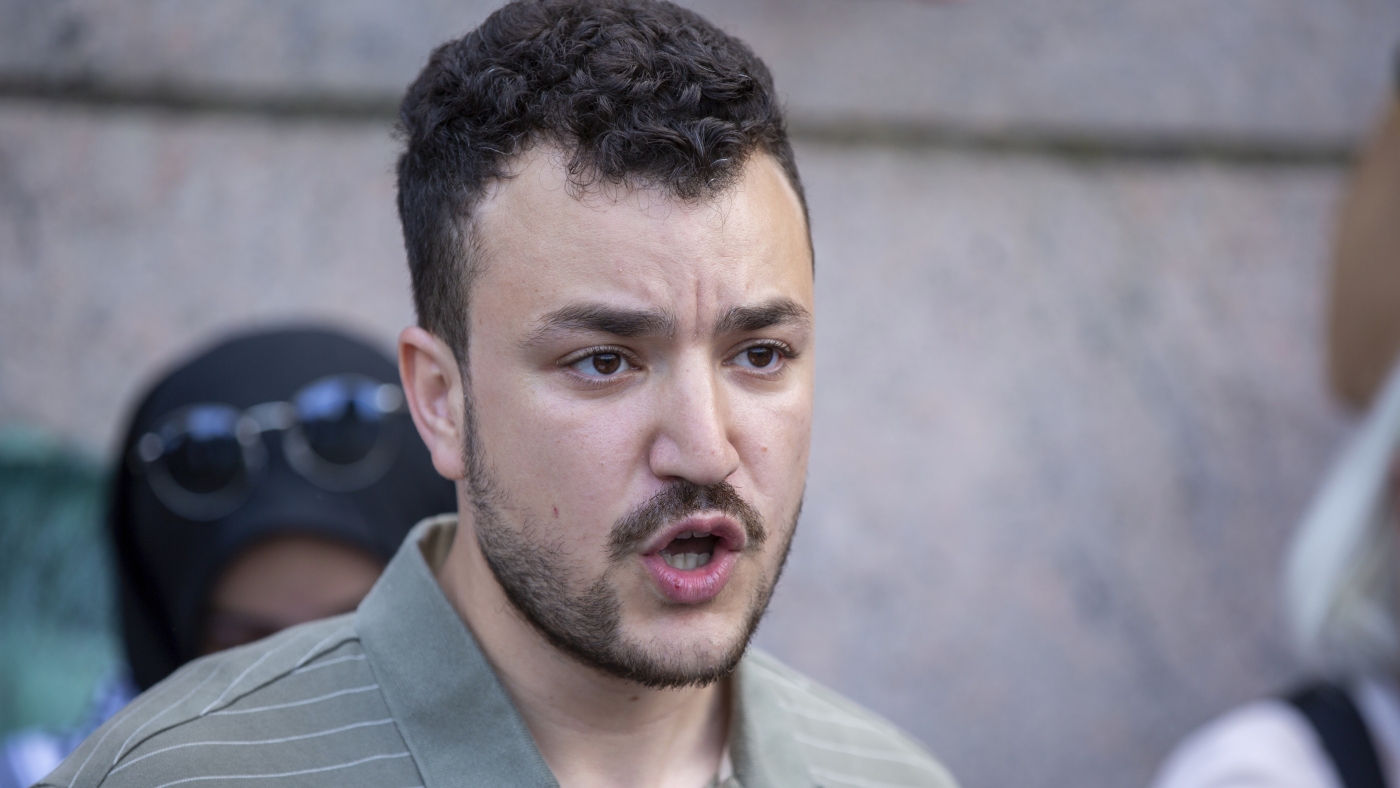Introduction
In the heart of New York City, a storm of controversy erupted around Mahmoud Khalil, a former Columbia University graduate student and pro-Palestinian activist. His detention by Immigration and Customs Enforcement (ICE) in March sparked a legal battleground that has since become a focal point in discussions about immigration enforcement, political activism, and the limits of governmental power. This report delves into the timeline of events, the legal arguments presented, and the broader implications of Khalil’s case.
Initial Detention and the Government’s Position
The arrest of Mahmoud Khalil by ICE agents sent shockwaves through his support network and civil rights advocates. The government’s rationale for his detention revolved around alleged immigration violations, but critics swiftly pointed to his vocal activism in support of Palestinian rights as the true catalyst. The timing of his arrest, hot on the heels of his involvement in pro-Palestinian protests at Columbia University, only served to amplify these suspicions.
The Department of Justice (DOJ) stood firm in its defense, asserting that Khalil’s detention was both lawful and necessary. However, the specifics of his alleged immigration violations remained shrouded in secrecy, fueling the fire of those who believed his detention was politically motivated. As the case unfolded, rights groups passionately argued that Khalil’s First Amendment rights were being trampled, setting the stage for a protracted legal battle.
The Judge’s Order for Release: A Turning Point
The crux of the legal showdown centered on the legitimacy of Khalil’s continued detention. A federal judge in New Jersey ultimately sided with Khalil, ordering his release from ICE custody. This ruling was a significant blow to the Trump administration’s efforts to detain and deport him. The judge’s decision, though not fully detailed in public reports, hinted at concerns over the fairness of the detention and the government’s justification for keeping Khalil behind bars.
The order for release was met with jubilation from civil liberties advocates, who saw it as a resounding rebuke of what they perceived as a politically motivated attempt to silence dissent. Major news outlets, including ABC News, PBS, USA TODAY, and The Hill, extensively covered the ruling, underscoring its implications for activists and the broader debate over immigration enforcement. The judge’s stipulation allowed Khalil to be released on bail from a Louisiana immigration detention facility, where he had been held for over three months.
ICE’s Shifting Strategy and Continued Detention
Despite the judge’s clear directive for release, the situation remained in flux. ICE responded by pivoting its strategy, seeking alternative grounds to justify Khalil’s continued detention. This tactical shift effectively stalled his release, prompting further legal challenges and accusations of bad faith from the government. The Hill reported that the judge determined Khalil would remain in ICE detention after the agency changed its strategy. This maneuver raised serious questions about the government’s commitment to upholding the rule of law and respecting judicial decisions.
The Core Legal Arguments and Concerns
The case of Mahmoud Khalil brought several critical legal and ethical issues to the forefront. At the heart of the debate was the question of whether Khalil’s activism had played a role in his detention. Critics vehemently argued that ICE had specifically targeted him due to his pro-Palestinian views, thereby violating his First Amendment rights to freedom of speech and assembly.
Another pivotal argument revolved around the due process rights of immigrants facing deportation. Khalil’s supporters contended that he had not been afforded a fair hearing and that the government had failed to provide sufficient evidence to justify his prolonged detention. The extended nature of his detention, coupled with the lack of a clear and compelling justification, only served to intensify these concerns.
Furthermore, the case raised broader questions about the scope of ICE’s authority and the potential for political abuse. The agency’s willingness to shift its legal strategy in an attempt to circumvent a judge’s order highlighted concerns about its accountability and adherence to legal principles.
The Impact of the “Trump Administration” Context
The repeated mentions of the “Trump administration’s” involvement in Khalil’s case are not coincidental. The Trump administration was known for its aggressive immigration enforcement policies, often targeting individuals perceived as critical of the government or associated with controversial causes. This political context underscored the concerns about politically motivated targeting.
Khalil’s supporters argued that his detention was part of a larger pattern of intimidation and repression aimed at silencing dissent and suppressing pro-Palestinian activism. The repeated references to the administration’s involvement highlighted the perceived political dimension of the case, adding layers of complexity to an already contentious legal battle.
A Victory, But Not a Complete Resolution
While the initial judge’s order for release was a significant victory for Khalil and his advocates, the subsequent actions by ICE demonstrated the intricate challenges of navigating the immigration system. The agency’s shifting strategy and attempts to circumvent the court’s ruling underscored the hurdles faced by individuals fighting deportation, particularly those perceived as politically sensitive.
The case served as a stark reminder of the potential for abuse within the immigration enforcement system and the importance of safeguarding the rights of immigrants and activists. It also highlighted the crucial role of the judiciary in protecting civil liberties and holding the government accountable.
A Precedent in the Making
The legal battles surrounding Mahmoud Khalil’s detention are poised to have lasting implications. The case has already drawn attention to the potential for politically motivated targeting within the immigration system and the need for greater transparency and accountability in ICE’s enforcement practices.
The judge’s initial order for release, and the subsequent attempts by ICE to circumvent it, could set a precedent for future cases involving activists and individuals facing deportation. It reinforces the importance of robust legal challenges to immigration enforcement actions and the need for courts to carefully scrutinize the government’s justifications for detention. The case of Mahmoud Khalil, therefore, stands as a critical moment in the ongoing debate over immigration, activism, and the delicate balance between national security and civil liberties.











